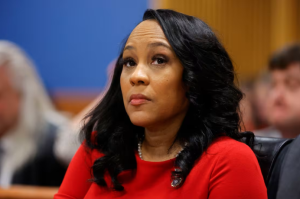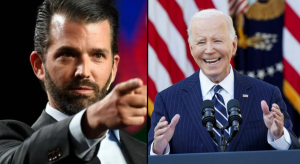Federal Judge Blocks Key Protections for LGBTQ+ Workers in Biden EEOC Guidance
A federal judge in Texas has issued a ruling that partially blocks the Biden administration’s Equal Employment Opportunity Commission (EEOC) guidance that aimed to expand workplace protections under Title VII of the Civil Rights Act to explicitly include sexual orientation and gender identity.
The decision, handed down by U.S. District Judge Matthew Kacsmaryk—a Trump-appointed jurist known for issuing conservative-leaning rulings—has reignited the national debate over the legal scope of Title VII and the rights of LGBTQ+ workers.
Judge Rules EEOC Overstepped
In his ruling, Judge Kacsmaryk argued that the EEOC overreached its statutory authority by interpreting the term “sex” in Title VII to include sexual orientation and gender identity. He wrote that such an interpretation is “contrary to law” and not grounded in the original legislative intent of the 1964 statute.
“The EEOC’s guidance imposes new obligations on employers without proper rulemaking procedures or statutory backing,” Kacsmaryk stated. “Federal agencies cannot create law out of whole cloth by unilaterally redefining statutory terms.”
The Lawsuit: Who Brought It and Why
The lawsuit was spearheaded by the Heritage Foundation, a prominent conservative think tank, and was supported by Texas Attorney General Ken Paxton, who has routinely challenged Biden-era policies on social and cultural issues.
The plaintiffs argued that the EEOC’s guidance amounted to forcing employers to accommodate “radical gender ideology”, such as requiring the use of preferred pronouns or allowing employees to use bathrooms aligned with their gender identity. They contended this infringed on the rights of business owners and employees who object on religious or philosophical grounds.
Attorney General Paxton celebrated the ruling, calling it a “victory for common sense and biological reality.” In a statement, he added: “The federal government has no authority to impose ideological mandates on private employers under the guise of anti-discrimination law.”
The EEOC’s Position and Limiting Factors
The EEOC initially issued the guidance in response to the 2020 Supreme Court decision in Bostock v. Clayton County, which held that firing someone for being gay or transgender violates Title VII’s ban on discrimination “because of sex.” However, the agency has been limited in its ability to enforce or revise the guidance due to lacking a quorum—several commissioner seats remain unfilled.
In a brief statement following the ruling, an EEOC spokesperson acknowledged the setback but noted that the agency will “continue to enforce Title VII consistent with Supreme Court precedent and within the limits of the court’s decision.”
Divided Response Across the Country
The ruling has drawn sharply divided reactions from advocacy groups, legal experts, and political leaders.
Civil rights organizations and LGBTQ+ advocates have condemned the decision as a dangerous roll-back of hard-won protections. The Human Rights Campaign (HRC) issued a statement calling the ruling “a step backward for equality and dignity in the workplace.”
“This decision undermines the spirit of the Bostock ruling and sends a message that LGBTQ+ people are not fully protected under the law,” said Kelley Robinson, HRC president.
Conversely, supporters of the ruling, including several conservative legal scholars and religious freedom organizations, praised it for reining in what they see as bureaucratic overreach. “This ruling restores legal clarity and prevents federal agencies from stretching statutes beyond their intended scope,” said Roger Severino of the Ethics and Public Policy Center.
What’s Next?
While the ruling applies only in specific jurisdictions and does not strike down the Bostock decision itself, legal analysts say it could have a chilling effect on future EEOC enforcement actions and inspire similar lawsuits in other conservative-leaning districts.
As the legal battles over workplace rights and gender identity continue to unfold, this case highlights the increasingly contentious intersection of civil rights law, religious liberty, and federal regulatory power in the post-Bostock era.









